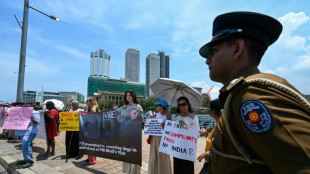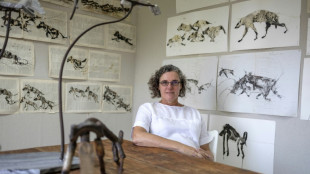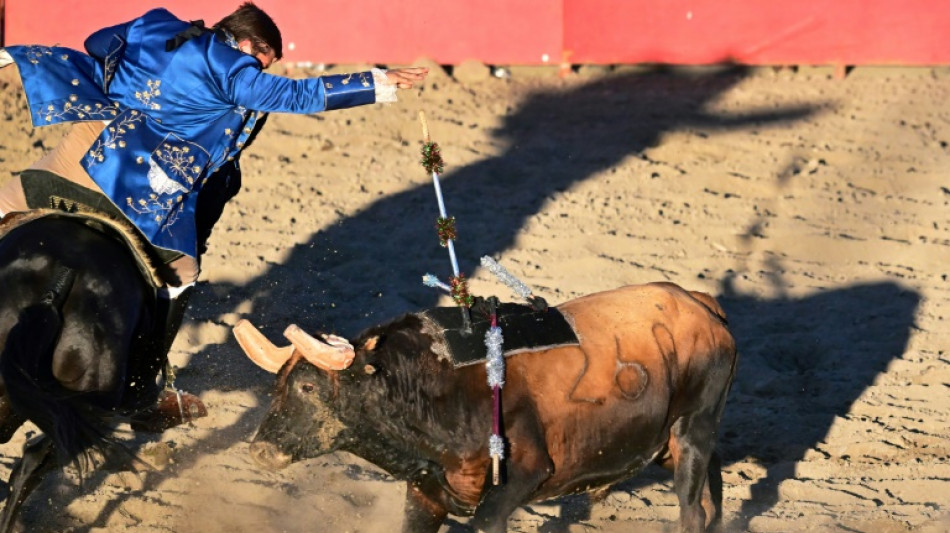
-
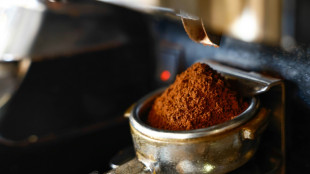 Where Trump's tariffs could hurt Americans' wallets
Where Trump's tariffs could hurt Americans' wallets
-
Trump says 'very close to a deal' on TikTok

-
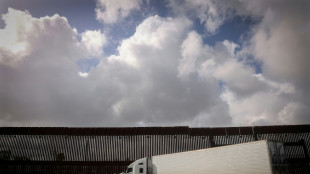 Trump tariffs on Mexico: the good, the bad, the unknown
Trump tariffs on Mexico: the good, the bad, the unknown
-
Postecoglou denies taunting Spurs fans in Chelsea defeat

-
 Oscar-winning Palestinian director speaks at UN on Israeli settlements
Oscar-winning Palestinian director speaks at UN on Israeli settlements
-
With tariff war, Trump also reshapes how US treats allies

-
 Fernandez fires Chelsea into fourth as pressure mounts on Postecoglou
Fernandez fires Chelsea into fourth as pressure mounts on Postecoglou
-
South Korea court to decide impeached president's fate
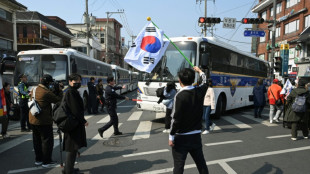
-
 Penguin memes take flight after Trump tariffs remote island
Penguin memes take flight after Trump tariffs remote island
-
E.T., no home: Original model of movie alien doesn't sell at auction
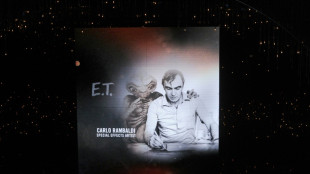
-
 Italy's Brignone has surgery on broken leg with Winter Olympics looming
Italy's Brignone has surgery on broken leg with Winter Olympics looming
-
Trump defiant as tariffs send world markets into panic

-
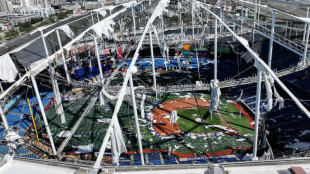 City officials vote to repair roof on home of MLB Rays
City officials vote to repair roof on home of MLB Rays
-
Rockets forward Brooks gets one-game NBA ban for technicals

-
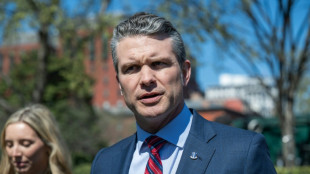 Pentagon watchdog to probe defense chief over Signal chat row
Pentagon watchdog to probe defense chief over Signal chat row
-
US tariffs could push up inflation, slow growth: Fed official

-
 New Bruce Springsteen music set for June 27 release
New Bruce Springsteen music set for June 27 release
-
Tom Cruise pays tribute to Val Kilmer
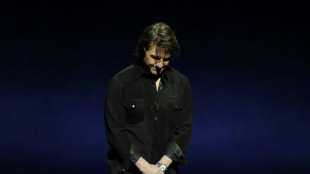
-
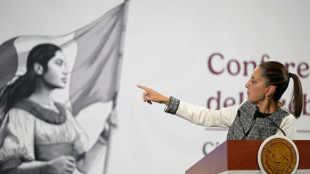 Mexico president welcomes being left off Trump's tariffs list
Mexico president welcomes being left off Trump's tariffs list
-
Zuckerberg repeats Trump visits in bid to settle antitrust case

-
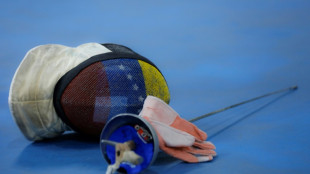 US fencer disqualified for not facing transgender rival
US fencer disqualified for not facing transgender rival
-
'Everyone worried' by Trump tariffs in France's champagne region

-
 Italy's Brignone suffers broken leg with Winter Olympics looming
Italy's Brignone suffers broken leg with Winter Olympics looming
-
Iyer blitz powers Kolkata to big IPL win over Hyderabad

-
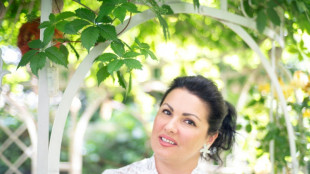 Russian soprano Netrebko to return to London's Royal Opera House
Russian soprano Netrebko to return to London's Royal Opera House
-
French creche worker gets 25 years for killing baby with drain cleaner

-
 UK avoids worst US tariffs post-Brexit, but no celebrations
UK avoids worst US tariffs post-Brexit, but no celebrations
-
Canada imposing 25% tariff on some US auto imports

-
 Ruud wants 'fair share' of Grand Slam revenue for players
Ruud wants 'fair share' of Grand Slam revenue for players
-
Lesotho, Africa's 'kingdom in the sky' jolted by Trump
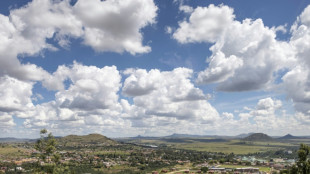
-
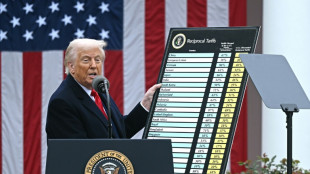 Trump's trade math baffles economists
Trump's trade math baffles economists
-
Gaza heritage and destruction on display in Paris
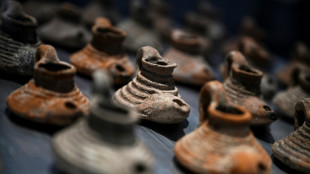
-
 'Unprecedented crisis' in Africa healthcare: report
'Unprecedented crisis' in Africa healthcare: report
-
Pogacar gunning for blood and thunder in Tour of Flanders

-
 Macron calls for suspension of investment in US until tariffs clarified
Macron calls for suspension of investment in US until tariffs clarified
-
Wall St leads rout as world reels from Trump tariffs

-
 Mullins gets perfect National boost with remarkable four-timer
Mullins gets perfect National boost with remarkable four-timer
-
Trump tariffs hammer global stocks, dollar and oil

-
 Authors hold London protest against Meta for 'stealing' work to train AI
Authors hold London protest against Meta for 'stealing' work to train AI
-
Tate Modern gifted 'extraordinary' work by US artist Joan Mitchell
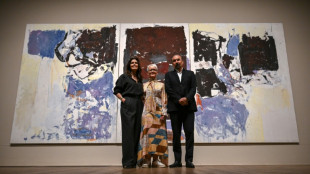
-
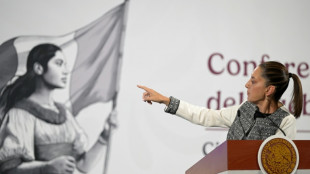 Mexico president welcomes being left off Trump's new tariffs list
Mexico president welcomes being left off Trump's new tariffs list
-
Tonali eager to lead Newcastle back into Champions League
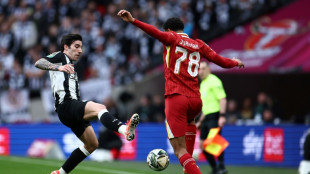
-
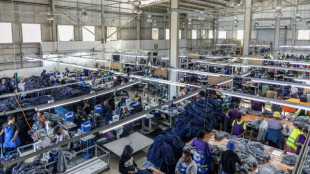 Lesotho hardest hit as new US tariffs rattle Africa
Lesotho hardest hit as new US tariffs rattle Africa
-
Stellantis pausing some Canada, Mexico production over Trump auto tariffs
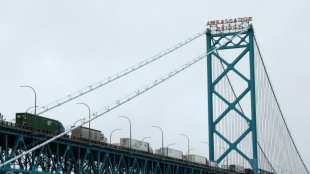
-
 Rising odds asteroid that briefly threatened Earth will hit Moon
Rising odds asteroid that briefly threatened Earth will hit Moon
-
Italy reels from Brignone broken leg with Winter Olympics looming

-
 Is the Switch 2 worth the price? Reviews are mixed
Is the Switch 2 worth the price? Reviews are mixed
-
Ancelotti’s tax trial wraps up in Spain with prosecutors seeking jail
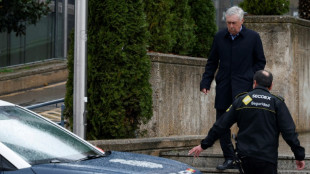
-
 Civilians act to bring aid to Myanmar earthquake victims
Civilians act to bring aid to Myanmar earthquake victims
-
US trade gap narrows in February ahead of bulk of Trump tariffs
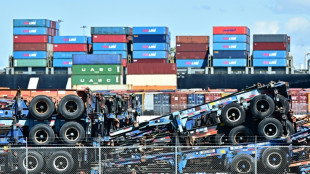

California's Portuguese community keeps bullfighting alive without bloodshed
Just like any other Portuguese bullfight, the elegant rider deftly guides his horse around the charging bull's horns, before bending down to plant a bandarilha in its spine.
Except that no blood is spilled -- the small spear is velcro-padded, and sticks to a cushion attached to the bull's back -- and most of the spectators' cheers are in English.
The scene takes place in Turlock, a small town in the heart of rural California, where tens of thousands of Portuguese-Americans have lived for decades, keeping the traditions of their ancestral homeland alive, not least bullfighting.
But due to Californian law, there can be no bloodshed.
"The first time I came here in California, 15 years ago, it was like 'woah, amazing' because they have everything like Portugal," said Joao Soller Garcia, a "cavaleiro" or horse rider, who travelled from Lisbon to take part in the bullfight.
"Go to a bullfight in Portugal and it's the same thing," he said shortly before entering the arena to be applauded by some 4,000 spectators.
The majority of the crowd are of Portuguese descent -- mainly immigrants from the Azores islands, who began to settle this agricultural area in the early 20th century.
The community has been growing ever since, with its own newspapers, radio stations and associations.
- 'Our lifestyle' -
Some 350,000 Californians proudly claim Portuguese heritage, and often remain fiercely attached to their culture and language.
This is the case for Jose, 30, who came to watch the bullfight with friends.
Born in California, he switches from English to Portuguese seemingly without noticing.
"It comes naturally to me. A lot of people here speak Portuguese in their daily life, even the younger ones, " he said.
"Sometimes it is easier for me to express my feelings or to joke in Portuguese. Portuguese is a very emotional language," he added.
Above the arena, the Portuguese flag flies alongside the American flag, and the Portuguese national anthem strikes up before its US counterpart.
The bullfight itself is organized by a religious group, led by Antonio Mendes, a cattle breeder in his 70s who revived the tradition in 1993.
"We're Portuguese and that's part of our lifestyle, especially the island that I'm from -- it's just rooted," he said.
- Grab by the horns -
Portuguese bullfights differ from the Spanish style, in that the animal is never killed in the arena.
But in traditional Portuguese events, the bull has been weakened by several bandarilha strikes by the time the "forcados" -- eight men with no horses or protection -- enter the arena to tackle the animal with their bare hands.
Because the bulls in Turlock are not hurt, breeders like Mendes have created a bloodline which is just as combative, but less heavy.
"Here the bulls weigh about 900 to 1000 pounds, because it's bloodless. In Portugal, they are 1300, 1400 pounds. Big bulls," said George Martins, a "forcado" captain.
Teams like Martins' are often dubbed "suicide squads" for a reason -- one of them literally has the task of grabbing the bull by the horns, suffering powerful headbutts to the stomach as his companions wrestle with the animal.
"It's not just brute strength... it takes a lot of technique," he said.
- 'It sucks!' -
Joao Soller Garcia, the "cavaleiro," enjoys both the classic Portuguese style and its Californian adaptation.
"Compared to Portugal, it is a little bit more danger because the bull is not hurt," he said.
"It's completely bloodless and we have to be more careful... the bull is at full strength."
But for Maxine Sousa-Correia, from a family of cattle breeders who have produced bulls for Californian fights since the 1970s, the use of velcro bandarilhas diminishes the spectacle.
"Unfortunately, this is a mere imitation... We invented the velcro pad and the Velcro on the end of the stick just so that it would at least add some color and some pageantry," she said.
"But at the same time, we're not doing justice to this animal, because this is what this breed is all is for.
Her husband Frank Correia added: "I think it sucks!"
"It should be done the way it is in Portugal. But we can't because we're in the United States of America and, you know, they don't appreciate the art."
Y.Kobayashi--AMWN
